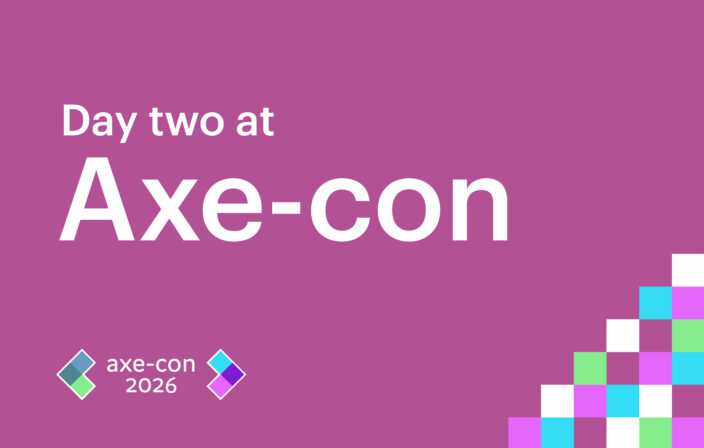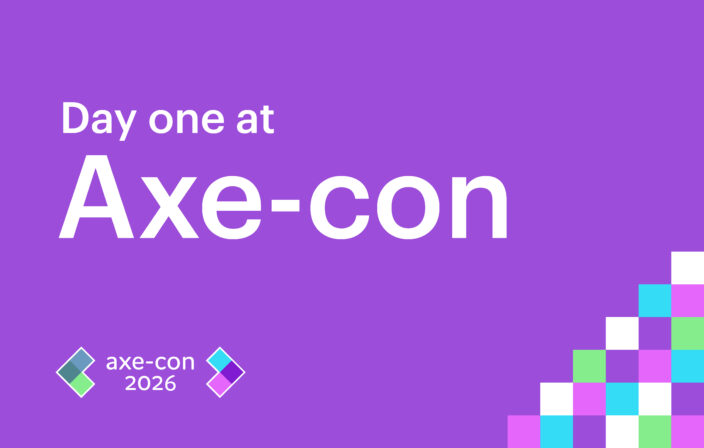This post is the second in a series about accessible marketing by The Whole Brain Group. The series will include helpful free downloadable content including an infographic celebrating the 23rd anniversary of the Americans with Disabilities Act. Follow a11ymktg on Twitter to keep up with the content posted during the series. You may even see a guest post from Deque!
 If you’re someone who is familiar with The Whole Brain Group, then you’ll know we’re strong advocates of inbound marketing. We believe that creating compelling content to attract and nurture leads throughout the buying process is essential to finding the kinds of customers you really want.
If you’re someone who is familiar with The Whole Brain Group, then you’ll know we’re strong advocates of inbound marketing. We believe that creating compelling content to attract and nurture leads throughout the buying process is essential to finding the kinds of customers you really want.
Before you can determine the inbound tactics you will execute, you need to understand who your ideal customer is in order to build campaigns to attract them. While you were creating your ideal customer profile, did you stop to consider that some of your customers may have a disability? And that their disability affects how they interact with your digital and inbound marketing offers?
For example, consider a website visitor (and potential buyer) who has a hearing impairment. If that amazing product demo video you just spent $10,000 on isn’t closed captioned, you’ve just lost a sale.
Three Reasons to Consider Accessibility in Your Digital Marketing
Reason #1: It’s The Right Thing To Do
At the basic level, ensuring that your marketing is accessible to everyone will help spread your message to the widest possible audience. More importantly, accessible marketing removes any barriers your prospects and customer may have to experiencing your digital content. If you put in the extra effort to make your marketing accessible, you will foster a greater sense of customer loyalty among people who would otherwise not have been able to access your content.
Reason #2: It’s The Legal Thing To Do
There are a number of standards, laws, and regulations in place to make sure businesses and organizations who interact with the public adhere to accessibility guidelines. If you are not compliant, it’s entirely possible that you could face legal action. Looking at it solely from a financial and public relations perspective, what’s more damaging to your business – spending some extra effort up front to make sure your marketing is accessible or paying for lawsuits, fines, and a damaged public image?
Reason #3: It’s The “SEO” Thing To Do
When you focus on creating clear and accessible content, a pleasant side effect is that you also make your online content more accessible to online search engines, which helps indexing and SEO. When you think about it, Google is the largest blind user of the Internet; its crawlers only “see” the information contained in your web page’s HTML code. Ensuring that your page contains proper markup, such as headings, meta-descriptions, and alt-tags allows Google to properly see your content for indexing. Helping Google do its job indexing your online content can boost your search rankings.
Before you finalize your digital or inbound marketing strategy, take a step back and look at your plan through the perspective of a person with a physical or cognitive disability, and ask yourself a few questions:
- Is the contrast in your color scheme enough to make it readable for someone with a visual impairment?
- Does the amazing video you just posted on YouTube have closed captions?
- What about the pictures on your blog? Did you remember to use alt tags?
These three reasons and examples are just the tip of the iceberg. Throughout the rest of our series, we will be covering additional topics and releasing free content offers to emphasize the importance of accessible marketing as part of your overall marketing strategy.
Read the first post in the series, Introduction to Accessible Marketing.



